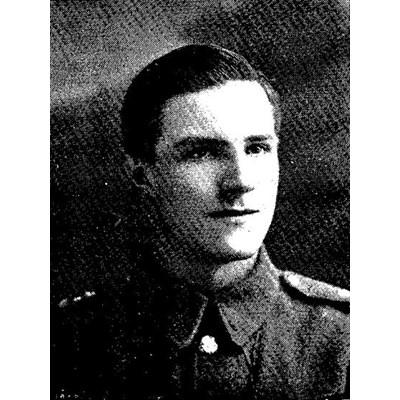Dunlop, Matthew Steel 41590 (1898 - 1918)

Private, 11th Bn. Royal Scots
Buried at Perth Cemetery (China Wall)
Commemorated at Hillhead High School
Matthew Steel Dunlop was the son of Mr. and Mrs. Alex. D. Dunlop, Mahratta, Lenzie. He was born on the 19th April, 1898, and entered Hillhead High School in1904, leaving in 1912. At School he was a fine, manly, frank, reliable boy, who always saw the bright side of things, and was a universal favourite with his comrades. He had strong artistic tastes, and was a clever sketcher in black and white.
On leaving School he entered the office of P. S. MacLellan, stockbroker, West George Street, and later transferred to the firm of Messrs. Turner & Houston, chartered accountants, St. Vincent Street. There he remained till he enlisted early in 1917 in The Royal Scots. His period of training was short, as in twelve weeks from joining the Army he found himself in the fighting line in France. This must have been a severe strain upon the young soldier, but here his School and home training stood him in good stead, and he passed through the ordeal with credit.
During the fierce fighting in front of St. Quentin in August, 1917, he was severely wounded in the neck by a piece of shrapnel. He was in hospital in England for four months, and was then sent to a convalescent camp in Randalstown, Ireland. From there he was transferred early in 1918 to the convalescent camp at Nigg.
In the critical days of March the demand for soldiers, especially experienced soldiers, was insistent. An appeal was made at Nigg for volunteers, and Private Dunlop, with some other heroic comrades, answered the call. In a few weeks he found himself again in France, and shared in the glorious deeds of General Plumer's Second Army. He had many stirring adventures during the advance across the shell-pitted fields of Flanders, and his letters home, while reflecting something of the hardships and dangers of his lot, breathe a fine spirit of devotion and cheerful endurance.
On the 28th September 1918, the Second Army pushed back the German lines over 5 miles, and on the 29th, when victory was already assured, Matthew Dunlop and almost all his company were killed by the bursting of a shell in their midst. His company commander, writing home, says--" He proved himself a stout man in the line, and once, under a very heavy shell fire, he gave me valuable assistance and
sustained a slight wound in consequence."




